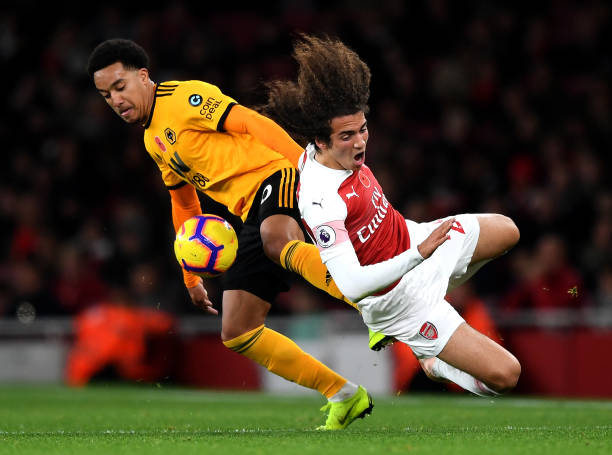Arsenal’s game against Wolverhampton Wanderers on Sunday reignited the debate about stoppage time, and the stats show the current system isn’t a fair and effective one.
Arsenal fans were incensed at the end of the Wolves match, as the fourth official put his board up to indicate five minutes whilst a player was still down injured. That injury break alone took three minutes, so indicating five in total was certainly far-fetched.
The argument goes that everyone uses the same system, and every team wastes time to benefit themselves, so it must be fair. However, the stats suggest that’s far from the case.
If you look at the time the ball spent in play in an average Arsenal game last season, it’s 58 minutes and 23 seconds. It’s a similar story for all the ‘big-six’ clubs, with Spurs the lowest on 57 minutes and 15 seconds, and Chelsea the highest on 58 minutes and 31 seconds.
Not one club from outside the big six even matches Spurs’ total, let alone Arsenal or Chelsea’s. Teams like West Ham (53 minutes and 34 seconds) and Burnley (54 minutes and 12 seconds) are the worst offenders, but they’re certainly not alone.
It’s clear that there’s a divide between the amount of time played by the smaller teams and the bigger ones, and it’s not just because they have more stoppages.
Untold-Arsenal did some analysis of some Arsenal games in 2016/17. They found that Petr Cech spends less than 20 seconds on his goal kicks, whilst visiting keepers from smaller clubs took between 27 and 34 seconds on average. That adds up when you consider they have more goal kicks to take in the first place.
It’s a similar story with throw-ins, where Sean Morrison of Cardiff City recently spent eight minutes and 15 seconds on his long throws, an 11th of the entire game. There’s little official data on these sorts of stoppages, for some reason.
So it’s not that the ball just goes out of play more in a game involving the smaller sides, it’s that they waste more time when it does go out.
What’s the solution?
The best solution would be to stop the clock whenever the ball goes out of play. This doesn’t have to affect the speed of the game, as you could still have bookings for timewasting and so on, you’d just remove the incentive to waste that time.
Alternative options include delegating timekeeping to another official. There’s no reason why the referee should be in charge of the job, and it’s clearly not possible to multitask giving decisions, informing the players of those decisions, controlling those players and also keeping track of how much time is being wasted.
Then there’s the multi-ball system, which is already so effective in European competition. The usual tricks of booting the ball into the stands or walking slowly over to it before walking slowly back to the position of the throw-in suddenly don’t work anymore, as another ball is immediately available to you.
There are plenty of solutions, the football governing bodies just need to decide on one and implement it.

